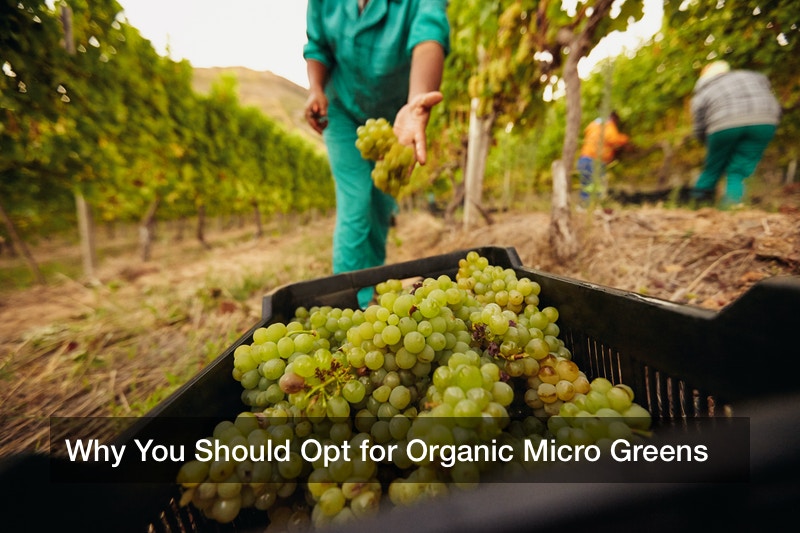
Micro greens have been around since the 1980’s. They were first introduced into the restaurant scene in California. From then on wards, they have risen in popularity across America and have been since been touted as a superfood.
There has also been a growing awareness of the environment, health, and ethical business practices. Organic farming applies sustainable processes as a way of addressing these issues. These plants provide nutritional value without posing a threat to the environment.
In this article, we’ll be looking at why micro greens need to be organic. Specifically, how organic micro greens have a greater positive impact on the environment as well as our mental and physical health.
No Pesticides or Commercial Fertilizers
The key difference between organic and inorganic farming is that no pesticides and commercial fertilizers are used. Food is grown with compost, and pests are controlled using techniques such as crop rotation. Sometimes managing pests is done by using predatory insects that feed.
Micro greens are a category of baby plants said to be somewhere between a sprout and a baby green. At this stage, they are small in stature. That means they have a small surface area to volume ratio. Using chemicals usually takes a toll on the plant.
Commercial pesticides are not just harmful to edible flowers and micro greens; they also make it harder to manage pests. Using chemicals to control diseases makes insects resistant to the chemicals over time. On top of that, inorganic fertilizers can ruin the soil’s fertility. Huge tracks of land can become barren with prolonged use. Growing organic micro greens is a more sustainable way to maintain the land.
Nutritional Value
There is a reason why they refer to micro greens as a superfood; they are packed with nutritional value. They can be cooked in a variety of ways or eaten raw, which prevents the breakdown of important vitamins and minerals.
There are many different types of organic micro greens you can add to your diet. They range from sugar flowers, vegetables to different types of herbs. The fact that they are sustainably grown makes them safer to eat raw.
Organic foods also retain most of the nutritional value compared to their inorganic counterparts. Sustainable farming practices keep the soil nourished, which gives the plant more raw materials to make important compounds.
Organically grown vegetables, edible flowers, and fruits generally have about 20 to 25% more iron, phosphorus, as well as more vitamins and minerals. Micro greens grown organically have more antioxidants and important minerals. These compounds are critical in reducing oxidation, which is a factor that can increase the risk of cancer.
Taste and Flavor
Organic micro greens are a great addition to your recipe. They have a flavor that ranges from sweet to bitter. Many different types of plants can be grown as micro greens. They may include crystallized rose, chickpeas, lentils, and even cereals like corn and barley.
Micro greens not only have a high nutritional value, but they can also have a strong flavor. They can be used in salads, or you can add them to smoothies. There is a great variety of plants you can use, ranging from garlic, broccoli, to edible flowers, and crystallized pansy.
Organic micro greens are even tastier. The sustainable farming practice ensures the plant retains the important compounds and nutrients. Their flavor is strong and is not influenced by chemicals from commercial fertilizers.
If you use micro greens in your recipe, be prepared to be enchanted by the unique taste of this superfood. You can experiment with micro herbs, crystallized flowers, and other plants in your salads, smoothies, and soups.
In Conclusion
Micro greens are packed with a lot of vitamins, minerals, and antioxidants. They have great flavor and taste when used in soups, salads, and dishes. However, sustainably grown vegetables have more nutrients and are safer to eat raw. You can choose to go for organic micro greens, as they are more beneficial to the environment and your overall health.


